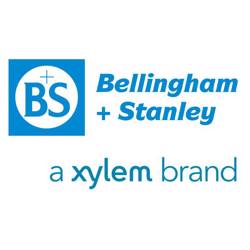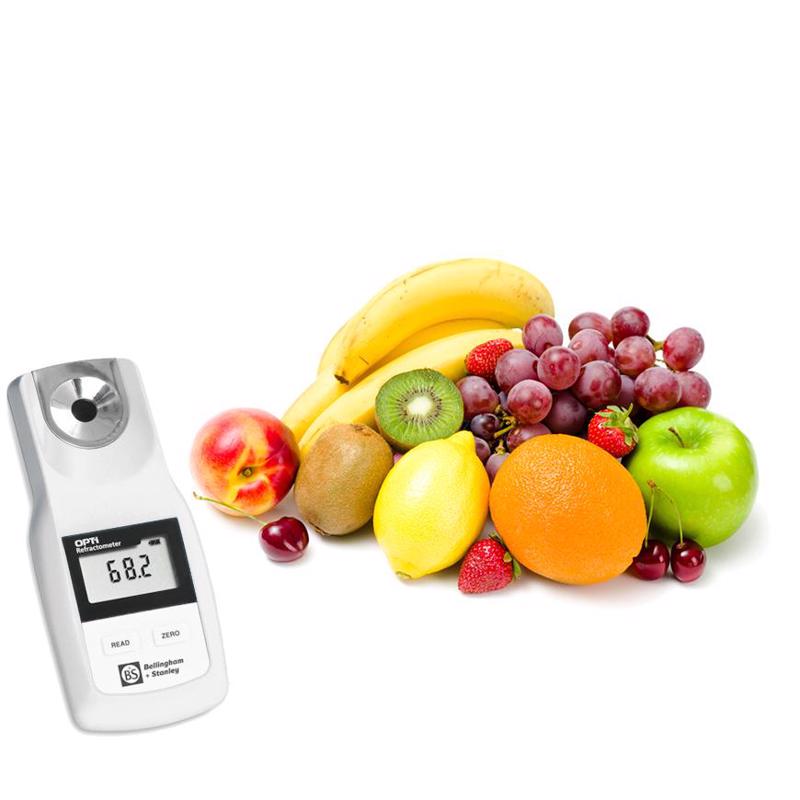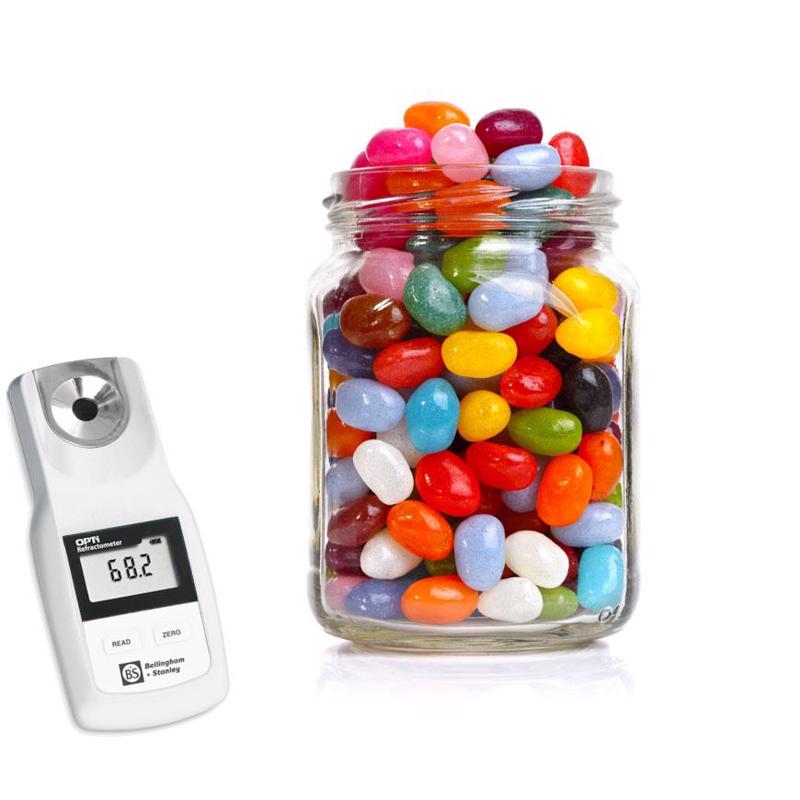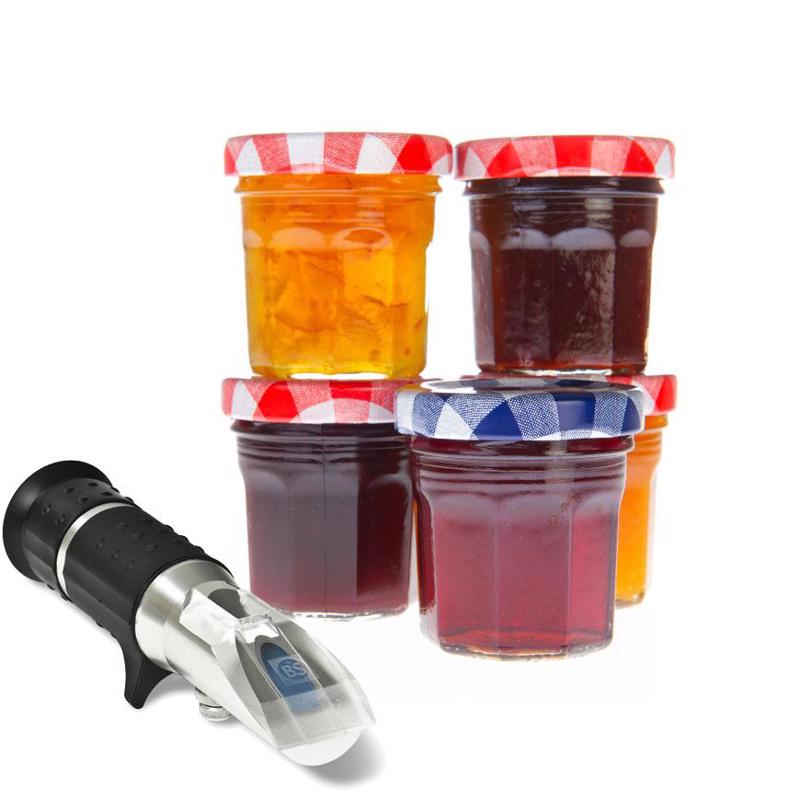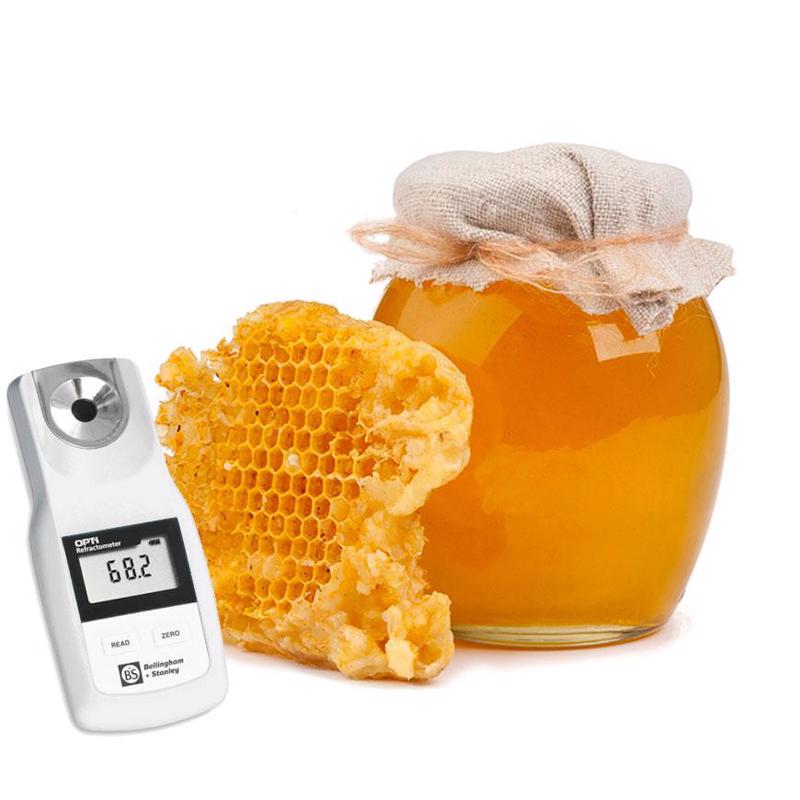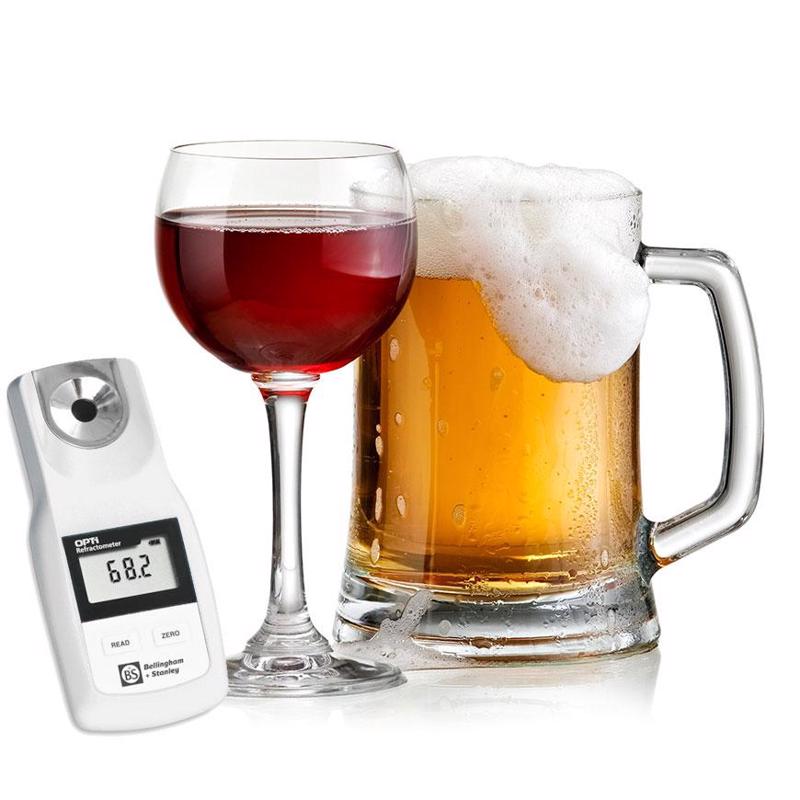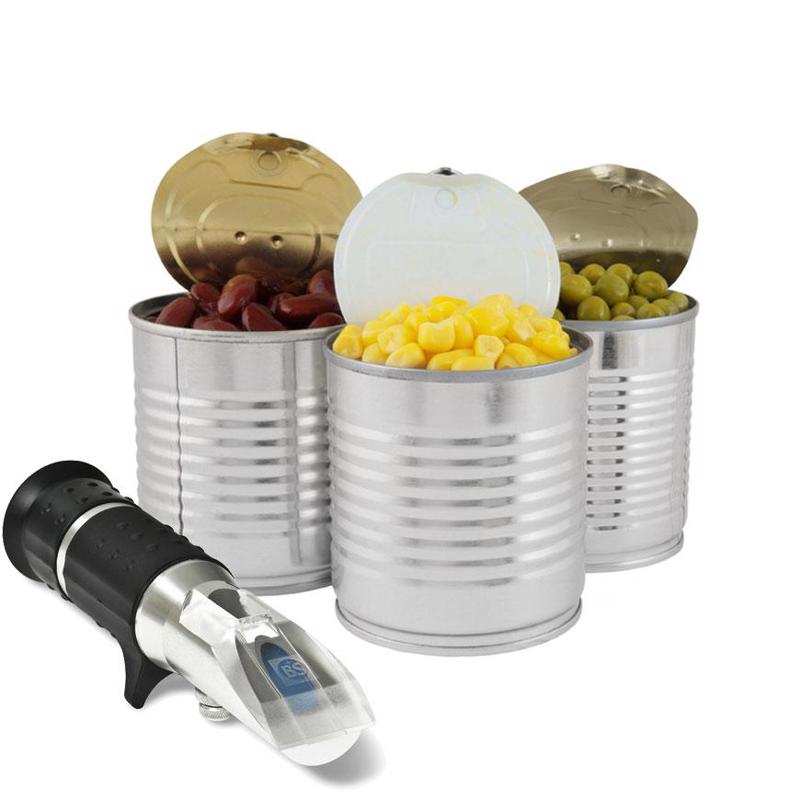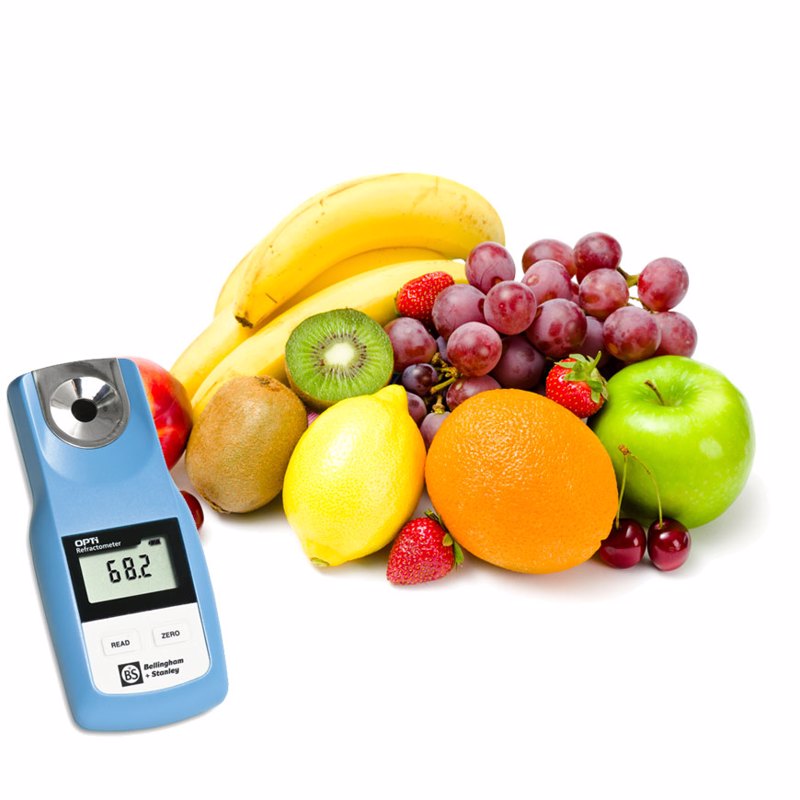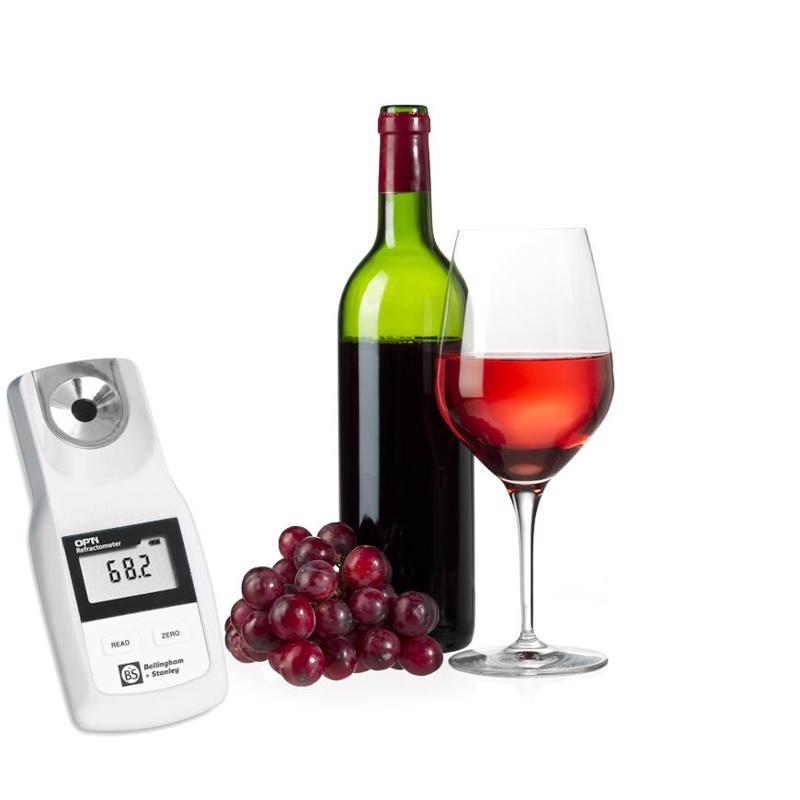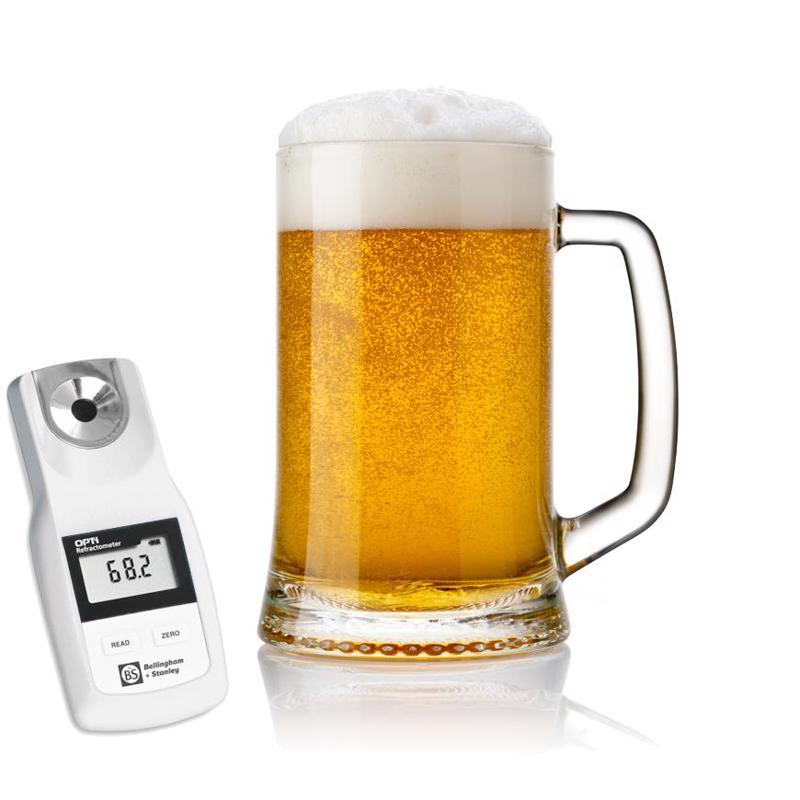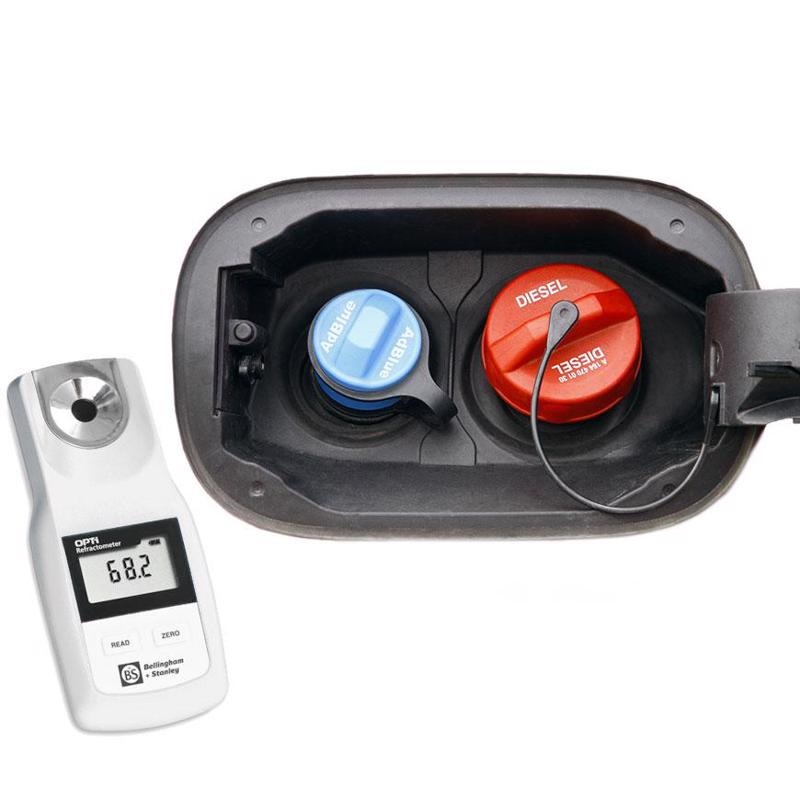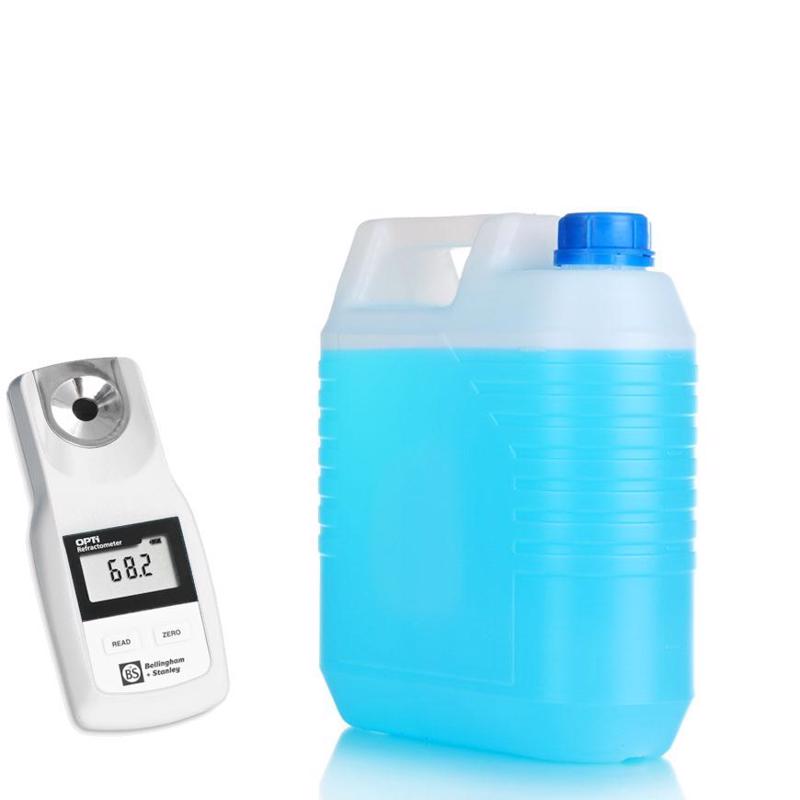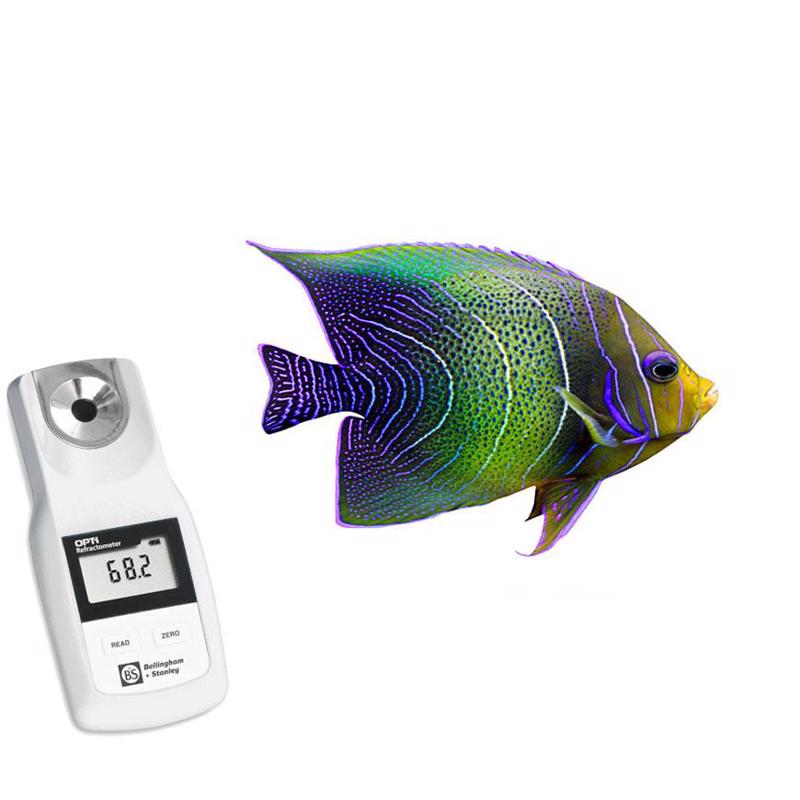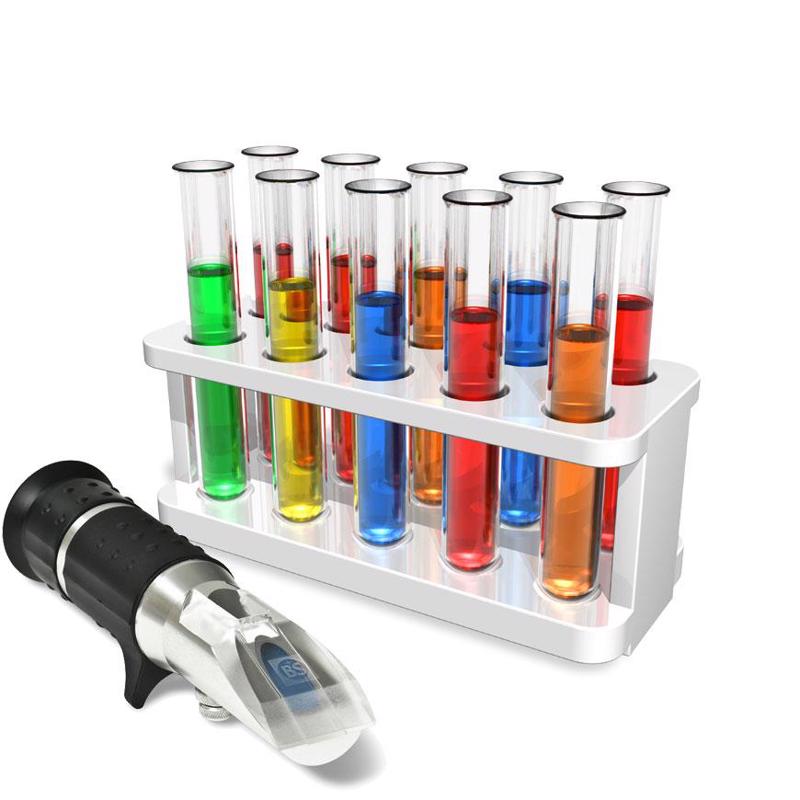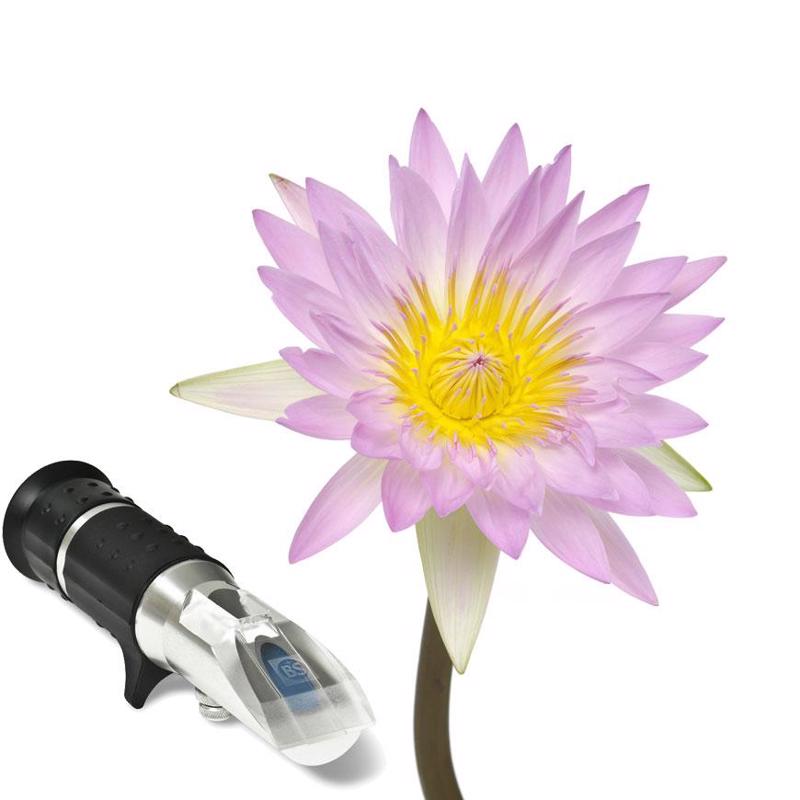OPTi handheld refractometers
Bellingham + Stanley OPTi digital handheld refractometers are manufactured in the UK as highly reliable premium quality instruments suitable for use in the harshest of environments. There are many different models within the OPTi family covering food, beverage and chemical instruments as well as life science, automotive, heat transfer and even customer specific applications.
Food & Beverage
Bellingham + Stanley has been manufacturing handheld refractometers since the 1930s when they were first introduced for checking the ripeness of sugar cane immediately in the field. Since then the use of a refractometer within the food & beverage industry has grown in its application.
Refractometers for testing ripeness of fruits, moisture in honey, sugar content in jam, marmalades and syrups.
There are many reasons to use a refractometer within food & beverage, for instance refractometer can be used for testing the ripeness of fresh fruits such as tomatoes and grapes simply by squeezing a small amount of juice directly onto the refractometer prism. Refractometers can also be used for testing finished juices and other soft drinks - perfect for a small to medium sized business looking to monitor and control product.
Food and beverage refractometers can also be used in the manufacturing of jam, marmalade, syrup and other high sugar content products. If you would like to use a refractometer for high sugar content, look out for instruments with scales measuring between 28-82 Brix.
Beer & Wine
From the person taking their first tentative steps into home-brew, to the microbrewery and beyond our refractometers have been helping brewers for years.
Refractometers are used in the wine industry for two purposes: to measure the sugar content of grape juice to determine payment to growers and to measure approximate alcohol content of the wine at its final stages.
Refractometers can assess grape juices using the Brix scale, however when it comes to measuring alcohol things get a little more complicated. Traditionally a number of special scales have been devised for the alcohol/fermentation process. These empirical scales are specific to the wine and brewing industry and different countries tend to adopt different scales including Zeiss, Plato and Oechsle scales.
Our top selling Brewers Kit contains everything you need to get started. It includes an OPTi Brew, measuring in specific gravity (SG) and Zeiss, graduated hydrometer and hydrometer jar. It’s perfect for craft brewers thanks to its SG scale which is useful for testing wort prior to fermentation.
Life Science
Bellingham + Stanley OPTi instruments for Life Science include aquaculture and aquarium refractometers, low volume refractometers for entomology, as well as test strips for oil in water. These test papers detect the presence of oils (such as diesel) in water. Quick and simple to use, they’re perfect for early detection of contamination at waterlogged sites prior to lab testing.
Low volume refractometers can measure nectar samples taken from flowers by using a specially adapted prism flap. The enhanced flap has a precision machined face - enabling very close contact with the prism allowing for a very thin film of sample.
Bellingham + Stanley also stock refractometers designed to help you keep your aquarium water at optimal levels.
Automotive
Whilst the majority of Bellingham + Stanley OPTi refractometers are used in the food & beverage industry we also supply many refractometers for automotive use. Using the same techniques to obtain a reading as a Brix refractometer, automotive instruments are able to test coolant fluids and battery acid - ideal for vehicle service centres, garages and car manufacturers.
AdBlue® is additive that is stored as a concentration in a separate tank to the fuel prior to mixing. It is essential that these systems are not compromised and that the concentration is accurately maintained. Handheld refractometers can be used to measure the concentration of AdBlue® (DEF) and exhaust gases. Given that precision is key, we recommend using an OPTi digital refractometer to determine the 32.5% mix required for efficient systems.

